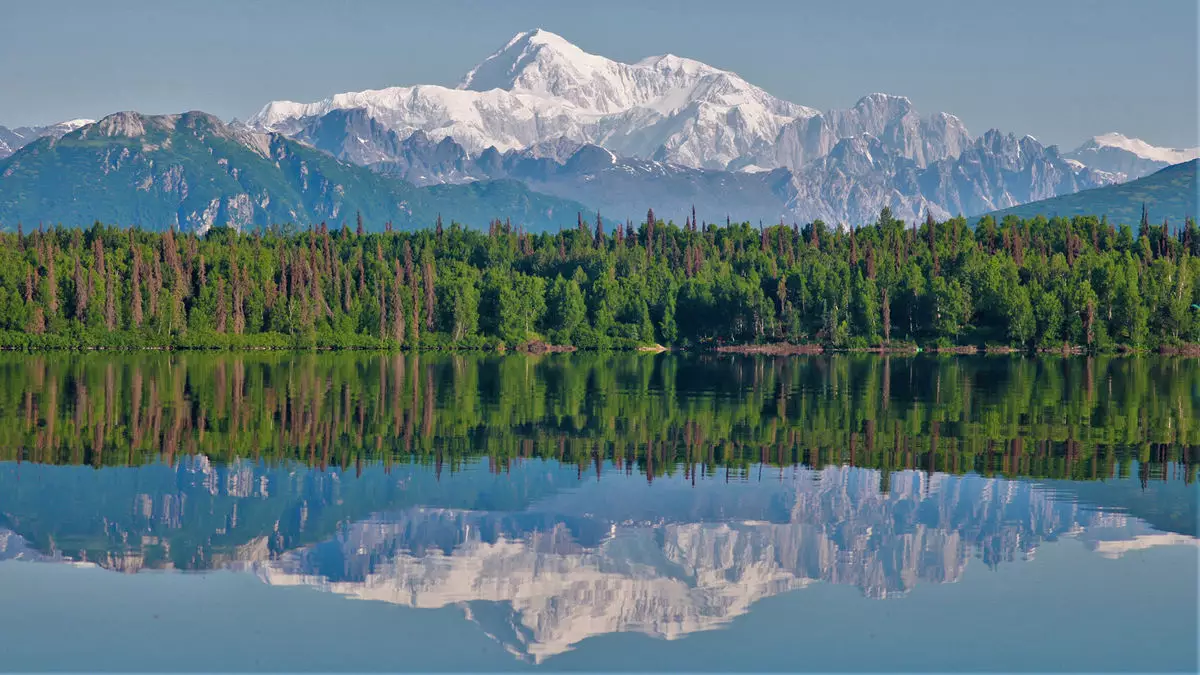The reestablishment of the name Mount McKinley for North America’s tallest mountain has reignited discussions surrounding identity, culture, and historical acknowledgment in the context of Indigenous rights. This tumultuous debate has unfolded primarily since President Trump’s inauguration, where an executive order aimed at reverting the name back to its previous designation before the 2015 decision by the Obama administration officially recognized the mountain’s Indigenous name—Denali, meaning “the high one” in Koyukon Athabascan.
The journey of this name has not only involved geographic categorization but has also stirred deeply rooted cultural sentiments among Alaska’s Indigenous communities and the wider Alaskan populace. This situation has drawn the attention of various stakeholders, including tourism operators who respect and honor the traditional name. With this socio-political backdrop, the discussion illustrates more than just a naming discrepancy; it embodies the broader struggles between colonialism and the reclamation of Indigenous identities.
Jordan Sanford, the president of Doyon Tourism, articulates a fundamental perspective that transcends mere nomenclature. For Sanford, referring to the mountain as Denali is not simply a preference but a reflection of the respect Indigenous peoples have for both the land and their historical narratives. His organization runs excursions in Denali National Park and is committed to preserving the name that acknowledges the spiritual significance the mountain holds within Indigenous culture.
This sentiment echoes through various social media platforms, where businesses like the Kantishna Roadhouse have declared their intention to continue using the name Denali. Their statements reflect a growing trend among local companies that prioritize Indigenous acknowledgment over external political narratives. Such positions signify a collective resistance against forces aiming to reimpose historical names that lack local significance and resonance.
The emotional connection to Denali extends beyond tourism; it has become emblematic of identity and cultural continuity. Posts from local businesses have received overwhelming support, with one comment section amassing over 105,000 likes on social media platforms—a clear indicator of public sentiment on this issue. Alaskans, especially the Indigenous people, have woven Denali into their cultural fabric, demonstrating that the mountain is not only a geographical landmark but a pillar of their heritage and collective consciousness.
The political dimensions of this debate are complex and multifaceted, casting light on historical injustices and the ongoing struggle for Indigenous recognition in America. In battling for the name Denali, local lawmakers have pushed back against what they perceive as a regressive move by the previous administration. The Alaska House of Representatives crafted a resolution urging the federal government to uphold the name Denali, reiterating a shared commitment by Alaskans to acknowledge the importance of this designation.
Historical context reveals that the peak was named McKinley in 1917 after President William McKinley, who had no ties to Alaska and never set foot in the state. This incongruence highlights the continued legacy of colonialism embedded within American naming conventions. For many, recalling McKinley—whose identity was largely framed by geopolitical agendas—over Denali is disrespectful to the Indigenous communities that have honored the mountain long before his presidency.
Jillian Simpson, CEO of the Alaska Travel Industry Association, suggests that regardless of official nomenclature, Denali is likely to remain the name used in daily dialogue among Alaskans. As the conversation surrounding the mountain’s name evolves, it becomes apparent that the fight for Denali is not simply about geography or historical accuracy but rather embodies a broader narrative about respect, acknowledgment, and the importance of preserving Indigenous cultures amid continuing political changes.
Moving forward, it is essential to comprehend the significance inherent in the naming of Denali and engage in a dialogue that honors the Indigenous perspective. Recognition is a crucial step in validating historical injustices and fostering a more inclusive narrative about America’s past. Embracing the name Denali ought not only be viewed as a gesture of respect towards Indigenous peoples but as integral to the ongoing effort to create a modern identity that acknowledges all parts of American history—both its triumphs and its tragedies.
Ultimately, this mountaintop debate transcends its physicality; it taps into the foundational elements of what it means to honor a land’s original stewards and their stories. It serves as a reminder that names carry weight, embodying stories of belonging, resistance, and cultural persistence, urging society to rethink the narratives it elevates and the meanings it ascribes to history.


Leave a Reply